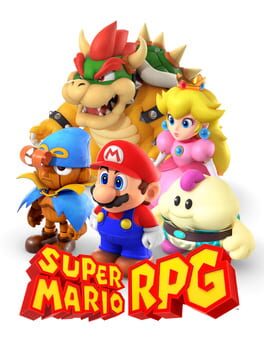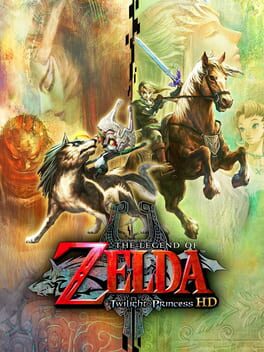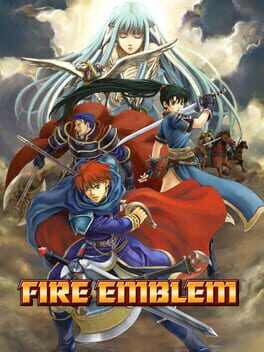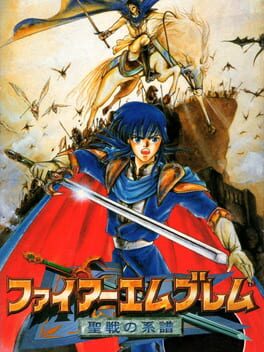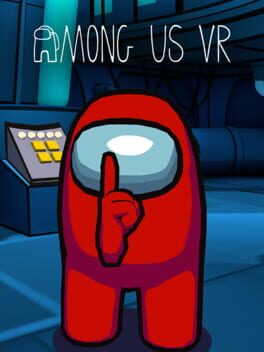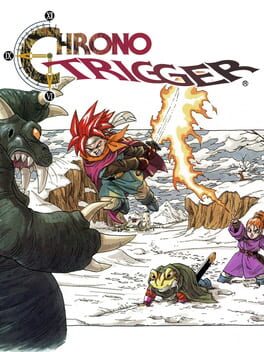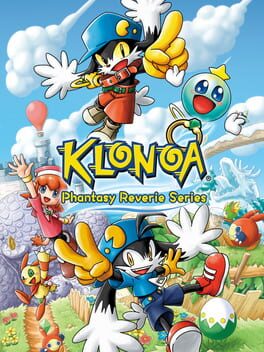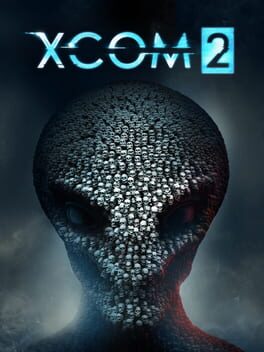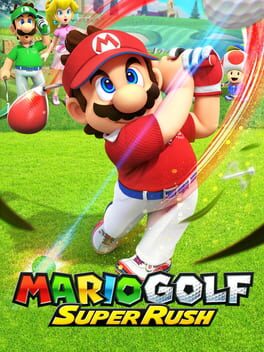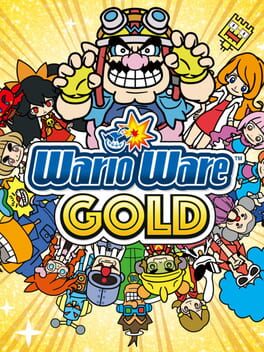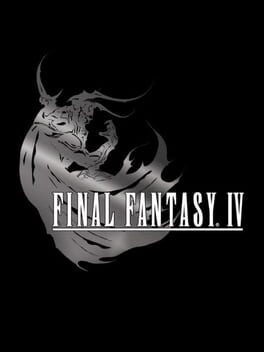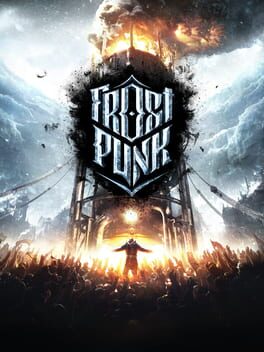defritos
2023
There is not much to Super Mario RPG. All those that have declared this to be baby's first RPG were 100% correct. Mechanically SMRPG is safe but satisfying. Moving through the world is breezy and the battles are equally swift and fun. Action commands (and the remake's added layer of splash damage) keep the player engaged in otherwise unremarkable combat. SMRPG holds up as a very accessible and playable game in the modern era, though not an essential one. Still, it's an enjoyable jaunt through a new take on the Mushroom Kingdom. And it's this bold take that really shines even decades later.
The Mario brand is iconic and beloved but is so familiar and so synonymous with Nintendo as a brand that it can come off as stale and bland. The magic of the Mario RPGs is that they reintroduce us to a Mushroom Kingdom that is playful, charming and absurd and Super Mario RPG gets all the credit for being first and setting the tone for the Paper Mario series, the Mario & Luigi games and I'd argue the Illumination Mario movie as well.
The Mario brand is iconic and beloved but is so familiar and so synonymous with Nintendo as a brand that it can come off as stale and bland. The magic of the Mario RPGs is that they reintroduce us to a Mushroom Kingdom that is playful, charming and absurd and Super Mario RPG gets all the credit for being first and setting the tone for the Paper Mario series, the Mario & Luigi games and I'd argue the Illumination Mario movie as well.
Twilight Princess is definitely not the best 3D Zelda but it's still very very good. Unfortunately, it has a tedious opening followed by multiple wolf sections as you unlock regions of the map. The wolf segments are by far the worst parts of the game with the Lanayru Tears of Light collection being the lowest point in the game. Thankfully things pick back up soon afterward with some remarkably well-designed dungeons, Arbiter's Grounds, Snowpeak Ruins, and Temple of Time are all candidates for best Zelda dungeons.
The issue is that outside of the dungeons Twilight Princess has very little to offer. There are some fun set-piece moments but this version of Hyrule does not invite the same curiosity or exploration as Majora's Mask or Windwaker. However, every now and then Twilight Princess will surprise you with its uniquely bizarre atmosphere, aesthetics, and music.
The issue is that outside of the dungeons Twilight Princess has very little to offer. There are some fun set-piece moments but this version of Hyrule does not invite the same curiosity or exploration as Majora's Mask or Windwaker. However, every now and then Twilight Princess will surprise you with its uniquely bizarre atmosphere, aesthetics, and music.
A childhood classic of mine. Blazing Blade is Fire Emblem distilled to its essential components with no bloat and no grinding. Being a GBA Fire Emblem game, it looks and plays incredibly well. It's snappy enough to be a pick-up-and-play game but has enough RPG mechanics and progression to keep you invested. The story is a bit basic and the translation has some rough parts but I find the cast to be interesting and memorable, especially if you dig into their supports. The game rewards replays and is a joy to go back to when I need a cozy comfort game.
Fire Emblem: Genealogy of the Holy War was my white whale game. I've started it before and never found any momentum past the first map and honestly, I don't blame my past self for not sticking with it. Each map past the prologue is a behemoth that takes multiple hours and sessions to clear which creates a multitude of issues for itself, especially for longtime Fire Emblem fans that started with later entries in the series.
For one, the game has to balance out the sheer length of the maps by providing the option to save once every turn before you make your first move. This change is necessary to make it less of a pain to play but FE4 plays less like a tactics game as a result. When you have access to multiple save files, you can ultimately brute force your way through obstacles with simple trial and error. On top of that, the enemies are typically not spaced out evenly as with most FE games; instead, enemies come in big groups all at once. So there's this lopsided flow in each map where there might be some really fun, interesting action in one part of a map that is immediately followed by several empty turns where you move your army of a dozen plus character one by one until you reach the next big fight. Often this process leaves foot units to fall far behind your cavalry which will be doing the bulk of the combat.
All of the above reasons make it difficult to recommend Genealogy to casual Fire Emblem fans, especially when you factor in the unorthodox personal inventories and wallets, confusing love system, and the many hidden events. It's not a game I would have been able to comfortably complete without guides and tips from veteran players. And yet I recommend it all the same.
Genealogy of the Holy War is one of the greatest examples of gameplay story integration that I've seen. Typically stories in FE games are told between chapters, not in them; FE4 uses its scale, characters, and excellent sense of place to do the opposite. There is almost no divide between the game and the story. Character introductions, grand reveals, tragic deaths--these things and more play out in the context of gameplay lending each one a sense of life that I rarely see in later Fire Emblem games.
The maps themselves play a part as well. Each one is about the size of a country in the context of the world of Jugdral. In fact, if you were to overlap the maps of each chapter with a map of the continent you would see how they perfectly line up. The scale is visceral, especially when you revisit portions of the world in later chapters, knowing what they represent. Without even knowing it, I became intimately familiar with the geography and topography of Jugdral as well as the political and social context of each region. It's cliche to say, but Jugdral is as much a character as the units that make up your army.
The plot itself is excellent, which would seem odd because at its surface the writers use all the typical Fire Emblem story tropes. All the hits are here: the even-tempered noble protagonist, nasty bandits, the missing father, political infighting, the ambitious emperor, the evil cultists operating in the shadows, the tragic duty-bound opponent, and of course dragons. If you've played a Fire Emblem game some or all of these tropes will be immediately familiar to you. But Genealogy expands on these components by intelligently doling out pieces of the puzzle, building personal stakes, and adding layers of complexity to each of the major players in the story. I will not divulge too much lest I spoil my favorite parts but I'll just say that many characters had enough going on to carry their own games, which is evident in the follow-up midquel Thracia 776 which follows the stories of many secondary characters in Genealogy before the second half.
The story is not without problems though. The first and second halves tell very different stories. Both are excellent, but the second half suffers from a weaker cast (because of spoiler-y gameplay reasons) and lessened gameplay-story integration than the first half. Also, the writers had no imagination when writing women. Most women lack agency in the plot and are merely targets for the heroes to woo and the villains to harass. There are a couple of notable exceptions that shine through but these are few and far between. If you are interested in investing in this story be prepared for some outdated and offensive portrayals of women, several implied instances of SA, and some taboo subject matter (mainly incest).
Genealogy is unlike any Fire Emblem I've ever played for better or for worse. It's not a game that I can easily recommend neither is it one I see myself replaying but I am so glad I experienced it with my full undivided attention at least once. The story and how it plays out in gameplay is one that will stick with me for a long time.
For one, the game has to balance out the sheer length of the maps by providing the option to save once every turn before you make your first move. This change is necessary to make it less of a pain to play but FE4 plays less like a tactics game as a result. When you have access to multiple save files, you can ultimately brute force your way through obstacles with simple trial and error. On top of that, the enemies are typically not spaced out evenly as with most FE games; instead, enemies come in big groups all at once. So there's this lopsided flow in each map where there might be some really fun, interesting action in one part of a map that is immediately followed by several empty turns where you move your army of a dozen plus character one by one until you reach the next big fight. Often this process leaves foot units to fall far behind your cavalry which will be doing the bulk of the combat.
All of the above reasons make it difficult to recommend Genealogy to casual Fire Emblem fans, especially when you factor in the unorthodox personal inventories and wallets, confusing love system, and the many hidden events. It's not a game I would have been able to comfortably complete without guides and tips from veteran players. And yet I recommend it all the same.
Genealogy of the Holy War is one of the greatest examples of gameplay story integration that I've seen. Typically stories in FE games are told between chapters, not in them; FE4 uses its scale, characters, and excellent sense of place to do the opposite. There is almost no divide between the game and the story. Character introductions, grand reveals, tragic deaths--these things and more play out in the context of gameplay lending each one a sense of life that I rarely see in later Fire Emblem games.
The maps themselves play a part as well. Each one is about the size of a country in the context of the world of Jugdral. In fact, if you were to overlap the maps of each chapter with a map of the continent you would see how they perfectly line up. The scale is visceral, especially when you revisit portions of the world in later chapters, knowing what they represent. Without even knowing it, I became intimately familiar with the geography and topography of Jugdral as well as the political and social context of each region. It's cliche to say, but Jugdral is as much a character as the units that make up your army.
The plot itself is excellent, which would seem odd because at its surface the writers use all the typical Fire Emblem story tropes. All the hits are here: the even-tempered noble protagonist, nasty bandits, the missing father, political infighting, the ambitious emperor, the evil cultists operating in the shadows, the tragic duty-bound opponent, and of course dragons. If you've played a Fire Emblem game some or all of these tropes will be immediately familiar to you. But Genealogy expands on these components by intelligently doling out pieces of the puzzle, building personal stakes, and adding layers of complexity to each of the major players in the story. I will not divulge too much lest I spoil my favorite parts but I'll just say that many characters had enough going on to carry their own games, which is evident in the follow-up midquel Thracia 776 which follows the stories of many secondary characters in Genealogy before the second half.
The story is not without problems though. The first and second halves tell very different stories. Both are excellent, but the second half suffers from a weaker cast (because of spoiler-y gameplay reasons) and lessened gameplay-story integration than the first half. Also, the writers had no imagination when writing women. Most women lack agency in the plot and are merely targets for the heroes to woo and the villains to harass. There are a couple of notable exceptions that shine through but these are few and far between. If you are interested in investing in this story be prepared for some outdated and offensive portrayals of women, several implied instances of SA, and some taboo subject matter (mainly incest).
Genealogy is unlike any Fire Emblem I've ever played for better or for worse. It's not a game that I can easily recommend neither is it one I see myself replaying but I am so glad I experienced it with my full undivided attention at least once. The story and how it plays out in gameplay is one that will stick with me for a long time.
2022
Incredibly fun in the right group. The lack of roles makes most rounds feel a little samey but the base mechanics set a good enough foundation for players to create their own fun.
It plays very similarly to regular Among Us but actually embodying the crewmates brings a whole dimension to the game. Cornering someone that you are accusing, raising your hands in disbelief, turning your head to see who is over your shoulder; all of this immersion adds to the drama of each round and it's only possible in VR.
It plays very similarly to regular Among Us but actually embodying the crewmates brings a whole dimension to the game. Cornering someone that you are accusing, raising your hands in disbelief, turning your head to see who is over your shoulder; all of this immersion adds to the drama of each round and it's only possible in VR.
2008
When it comes to the often hailed retro game masterpieces (think FFVII, Mario 64, Zelda OoT) there's a concern that they could never live up to the hype, especially after a couple decades worth of rust.
Chrono Trigger absolutely lives up to the hype and is every bit as good as people say. Its a SNES JRPG condensed to all of its best attributes, without any filler, excessive grinding or random encounters. The pace is quick, the locations are varied and its all brought together with a lovable cast and that iconic Mitsuda soundtrack. Its such a focused, quality game through and through.
Chrono Trigger absolutely lives up to the hype and is every bit as good as people say. Its a SNES JRPG condensed to all of its best attributes, without any filler, excessive grinding or random encounters. The pace is quick, the locations are varied and its all brought together with a lovable cast and that iconic Mitsuda soundtrack. Its such a focused, quality game through and through.
Reviewed for Nintendo World Report:
https://www.nintendoworldreport.com/review/60976/klonoa-phantasy-reverie-series-switch-review
https://www.nintendoworldreport.com/review/60976/klonoa-phantasy-reverie-series-switch-review
2016
Incredibly designed, compelling and addicting; XCOM 2 is one of the best turn-based strategy games ever made. Every decision feels important and nothing is certain.
I cheesed my run with some save-scumming, but if you go Ironman mode or simply turn off autosaves you'll have of the most stressful but engrossing experiences available in video games.
I cheesed my run with some save-scumming, but if you go Ironman mode or simply turn off autosaves you'll have of the most stressful but engrossing experiences available in video games.
Super Rush is fine... The mechanics of the golf are pretty good for a casual golf game but the insistence on Speed Golf weighed down an otherwise solid Mario Golf entry.
Golf Adventure isn't as hefty as one might expect, but it's a decent diversion that teaches the basic mechanics well. If that's all you need then Super Rush delivers, but even then it's pretty ho-hum. Feel free to skip unless you're really hankering for some HD Mario Golf
Golf Adventure isn't as hefty as one might expect, but it's a decent diversion that teaches the basic mechanics well. If that's all you need then Super Rush delivers, but even then it's pretty ho-hum. Feel free to skip unless you're really hankering for some HD Mario Golf
2018
2007
Solid classic RPG with impressive pacing for most of the game. The self-sacrifice trope is used to the point of parody, but overall the story moves the game along nicely.
That is, until the end game where things become a nearly unbearable slog. I hear other versions are easier than the DS remake so maybe consider the other versions before trying this one out.
That is, until the end game where things become a nearly unbearable slog. I hear other versions are easier than the DS remake so maybe consider the other versions before trying this one out.
2018
